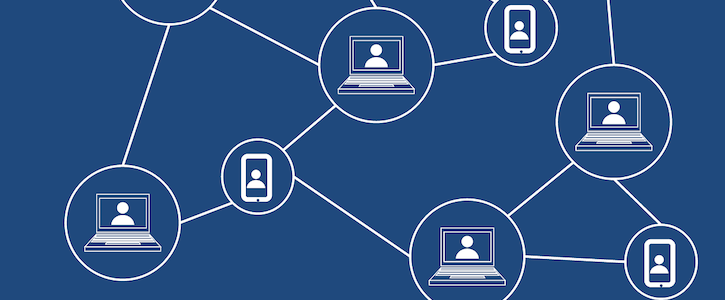- Politics
- Diversity, equity and inclusion
- Financial Decision Making
- Telehealth
- Patient Experience
- Leadership
- Point of Care Tools
- Product Solutions
- Management
- Technology
- Healthcare Transformation
- Data + Technology
- Safer Hospitals
- Business
- Providers in Practice
- Mergers and Acquisitions
- AI & Data Analytics
- Cybersecurity
- Interoperability & EHRs
- Medical Devices
- Pop Health Tech
- Precision Medicine
- Virtual Care
- Health equity
Mayo Clinic Is Partnering With a Startup to Make Blockchain Work for Healthcare
Can Mayo and Medicalchain find the elusive key to success?

One of the country’s most prominent healthcare systems has signed a deal to look at ways blockchain can be integrated into the healthcare industry.
Mayo Clinic inked a joint working agreement with Medicalchain, a British startup that uses blockchain technology to securely store patient medical records. Under the arrangement, experts from both organizations will work together to develop new ways to leverage blockchain to help improve patient care.
>> READ: Checking the Pulse of Blockchain in Healthcare
“We are thrilled to be working with Mayo Clinic,” said Abdullah Albeyatti, MBBS, MRCS, CEO of Medicalchain, in a press release. “Mayo Clinic will provide their world-class healthcare and health IT expertise, while Medicalchain will provide our knowledge of blockchain and crypto.”
Alebyatti said teams from Medicalchain and Mayo will work on several use cases using blockchain-based electronic health records (EHRs). However, that exploratory work will not affect Mayo’s own EHR system, said Duska Anastasijevic, a spokesperson for Mayo.
Last year, Mayo Clinic began the process of moving to a single integrated EHR and billing system at all of its campuses, partnering with Epic to be Mayo’s sole EHR provider. Anastasijevic said the new system went live on the healthcare organization’s largest campus, in Rochester, Minnesota, this past May.
Blockchain has become a major buzzword in the technology world. It uses a distributed “ledger,” rather than a centralized database, to store sensitive information, making the tech less vulnerable to hackers seeking to steal information.
The financial industry was an early adopter, using blockchain to secure data and speed up transactions. The healthcare industry has been slower to onboard the technology, though a number of firms like Medicalchain are exploring ways to bring the security system into the healthcare space.
Medicalchain is currently rolling out a pilot program designed to give patients control of their health records with an “electronic health passport.” The platform would give patients access to their EHRs via desktop and mobile platforms, but patients could also use their smartphones to grant access to physicians. The system is designed to combat medical record fragmentation, an undesirable situation in which patients’ important medical information is spread across various providers and locked EHR systems.
Anastasijevic said it’s too early to say precisely what might come out of the partnership between Mayo and Medicalchain.
“The agreement has just been signed, so the explorations are in very early stages, and we do not have any more details to share at this point,” she told Healthcare Analytics News™.
In addition to its medical passport project, Medicalchain has also rolled out a telemedicine platform called MyClinic.com. The tech enables secure video consultations with physicians. It also uses the health passport and a payment system called MedTokens.
A pilot program to test MyClinic.com was scheduled to launch this month in collaboration with The Groves Medical Group, in London, England. As it expands, the company hopes to use the platform to enable cross-border, international medical consultations.
Get the best insights in healthcare analytics directly to your inbox.
Related
WannaCry, NotPetya, and Cyberwarfare's Threat to Healthcare
3 Things That Healthcare Must Understand About Cybersecurity
Is Blockchain the Answer to Healthcare's Cybersecurity Concerns?
